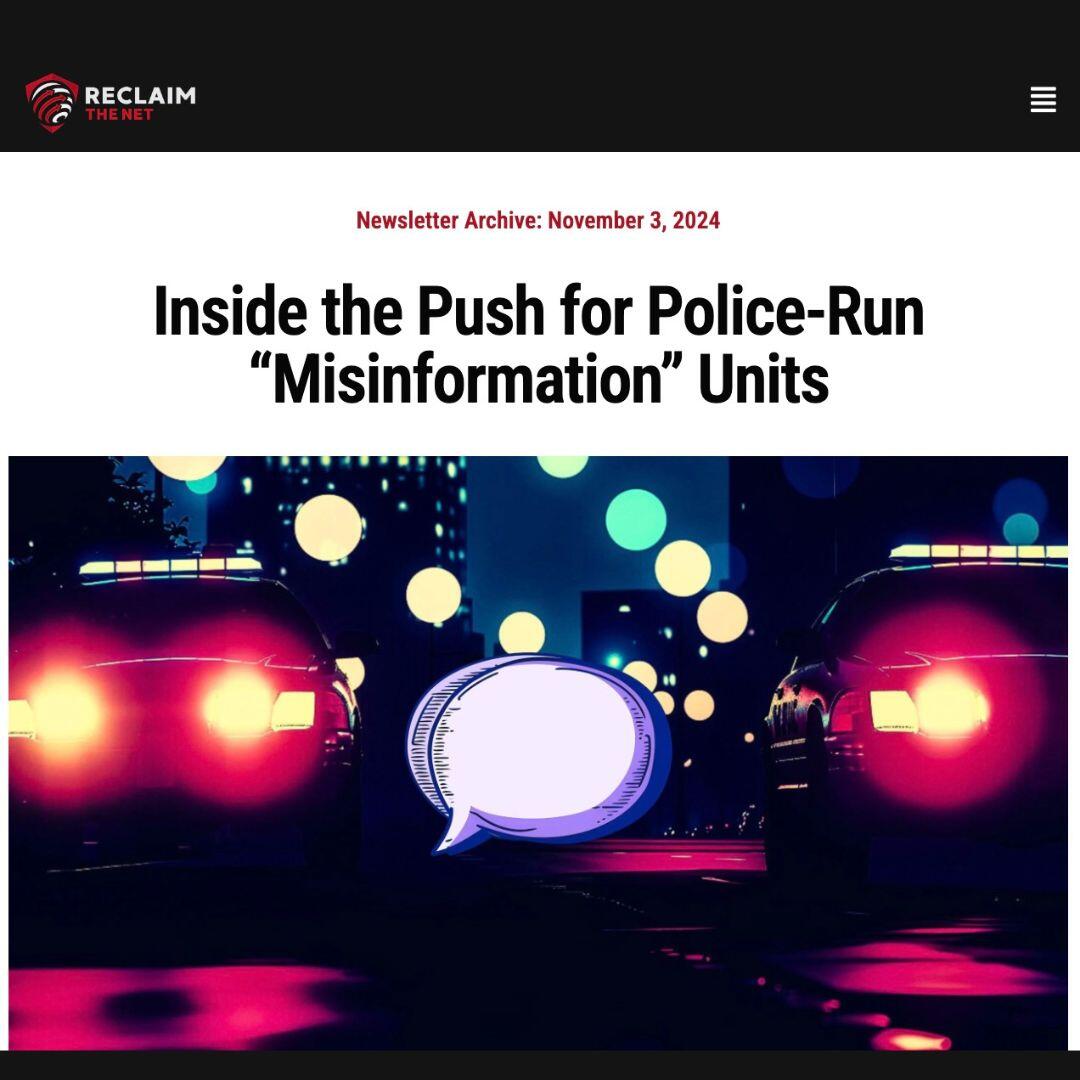reclaimthenet on Nostr: Lexipol, a private consulting giant advising over 8,000 U.S. law enforcement ...
Lexipol, a private consulting giant advising over 8,000 U.S. law enforcement agencies, is proposing something new and controversial: a “Misinformation/Disinformation Unit” embedded in police departments. Think about that.
Lexipol warned police departments to get ready for the “battle” against misinformation. Their recommendation? Build units to “fact-check” claims, “counter” narratives, and “collaborate” with Big Tech and “civil society” groups to monitor harmful content in real time. In other words, create police-backed mechanisms for controlling public discourse.
What’s alarming is Lexipol’s reach: over 8,000 agencies in 35 states rely on its policies. If even a fraction adopt this, it could mean a vast, semi-coordinated system for policing information, not crime. And this, right when Congress is debating the boundaries of government-tech collusion.
The justification? Fear. Lexipol suggests foreign threats—Russia, China, Iran—are behind dangerous disinformation that supposedly fuels public hostility against police. But is this really about protecting officers, or about controlling the conversation?
When private consultants urge law enforcement to wade into information control, we should all be paying attention.

Lexipol warned police departments to get ready for the “battle” against misinformation. Their recommendation? Build units to “fact-check” claims, “counter” narratives, and “collaborate” with Big Tech and “civil society” groups to monitor harmful content in real time. In other words, create police-backed mechanisms for controlling public discourse.
What’s alarming is Lexipol’s reach: over 8,000 agencies in 35 states rely on its policies. If even a fraction adopt this, it could mean a vast, semi-coordinated system for policing information, not crime. And this, right when Congress is debating the boundaries of government-tech collusion.
The justification? Fear. Lexipol suggests foreign threats—Russia, China, Iran—are behind dangerous disinformation that supposedly fuels public hostility against police. But is this really about protecting officers, or about controlling the conversation?
When private consultants urge law enforcement to wade into information control, we should all be paying attention.

